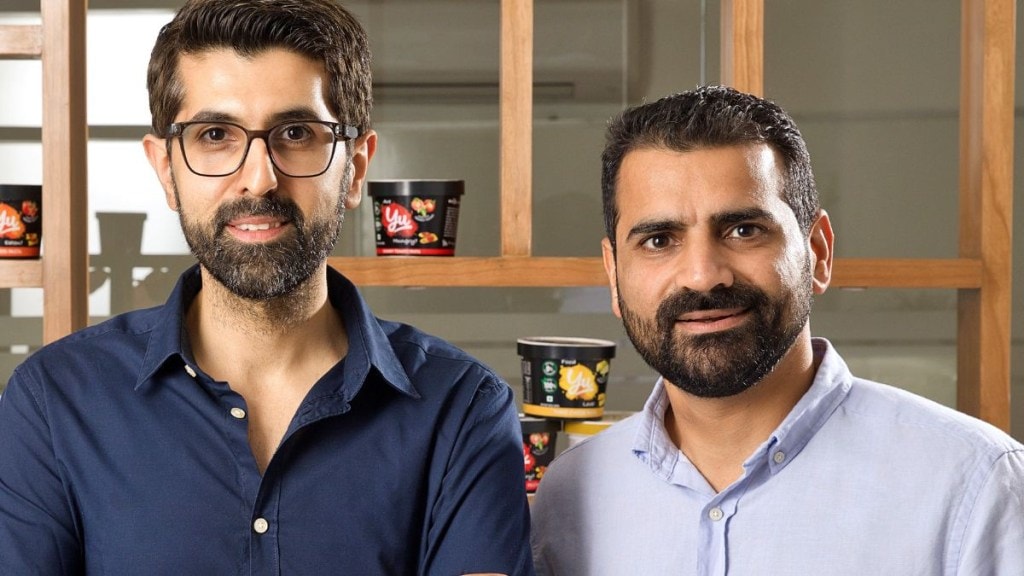The ready-to-eat market in India has grown by leaps and bounds in the last few years, with brands like Dawaat, ITC, among others ramping up its offerings. Among these, is YU Food, which sells a range of products including instant Korean noodles, and breakfast mixes, among others. “Unlike cup noodles which are prevalent in the market, we went the other way and started our operations with pasta that can be made in four minutes by adding hot water, which nobody had really done prior. After that, we launched halwas in a bowl, we have three types of halwas – gajar halwa, moong-dal halwa and Amritsari halwa, and then we eventually moved on to mainstream products such as cup noodles,” Bharat Bhalla, founder and executive director, YU Food told BrandWagon Online. The company which started its operation in October 2021 with just six stock keeping units (SKUs) claims to have expanded to 20 SKUs in 2023.
The packaged food market size in India is estimated to reach $3.4 billion by 2027, growing at a compound annual growth rate (CAGR) of 4.6% during the forecast period 2022-2027, as per a report by marketing intelligence platform, IndustryARC. The report further suggests that the ready meals segment is estimated to be the fastest-growing with a CAGR of 5.3% over the forecast period 2022-2027.
The company’s revenue from operations in its very first year that is FY22 stood atf Rs 74 lakh, as per the filings accessed by the business intelligence platform, Tofler. It incurred a net loss of Rs 2.64 crore. The company did not mention its advertising and marketing spends in the filings. “Now we are close to break-even point as last month, we are burning an average of Rs 10 lakh monthly now. By next quarter, we are looking to break even based on distribution strategy,” Bhalla commented.
Additionally, Varun Kapur, founder and executive director, YU Food claimed that the advertising spending differs from campaign to campaign but for the World Cup campaign, about 40% was spent on digital media across platforms. “The split between airline and traditional media is equal, which is 30% each respectively and the remaining 40% is for digital media,” Kapur added.
The company further claims to spend around 15% of its revenue on advertising. Of this, the cost of customer acquisition ranges between 65-70%. Meanwhile, the company stated that quick commerce platforms such as Instamart, Zepto account for 40-45%, its revenue while offline stores account for 30% of the revenue. The company claims to be present across about 6,500 retail outlets across India, the rest 25-30% is derived from export of goods.
The Delhi-based company claims to have adopted an omnichannel strategy. It further claims to be present across brick-and-mortar stores in 15 cities including Delhi-NCR, Bangalore, Lucknow, Kanpur, Mumbai, Pune, Kolkata, parts of Rajasthan and Punjab, besides seven cities across North-East. “Additionally, we have tie-ups with SpiceJet and Akasa airlines. Moreover, some of our products are available on other airlines. We are currently in conversation with two global airlines. Apart from this, we also export our products to South Africa and Australia. In fact, in South Africa, we are present across 2000 stores. So, about 20% of our business comes from exports,” Bhalla explained.
Furthermore, the company raised Rs 20 crore in a follow-on Series A round led by public market investor Ashish Kacholia and Asian Paints Promoter Group, Manish Choksi and Varun Vakil. Furthermore, the company counts cricketer Hardik Pandya, who is also the brand ambassador, founder of Boat, Sameer Mehta, Srikrishna Dwaram (partner, True North Private Equity), Nikhil Srivastava (PAG Private Equity) and DPIITs Start Up India Seed Fund, among its investors. “50% of Series A was subscribed by the existing investors. At the time, we inducted a couple of new investors and the most prominent one among those was Ashish Kacholia,” Bhalla added.
The company claims to have created products ranging between Rs 45-95. Of this, it said that noodles are a high demand category. “Our hero SKUs are specifically Hakka Noodles, a differentiated product as it is 100% whole wheat, followed by Cup Noodles. Hakka Noodles is about a six-month-old product and already ranks number one in its category, whether it’s Blinkit or Amazon and even in certain offline stores,” Kapur claimed.
Going forward, the company plans to foray into the beverage category such as fruit juices, among other drinks. “We have already launched a beverage, fresh coconut water, for which we have got a good response from the market, both online and offline. Our beverage is served in one of the airlines but now we are developing a portfolio across the beverage segment,” Bhalla said.

